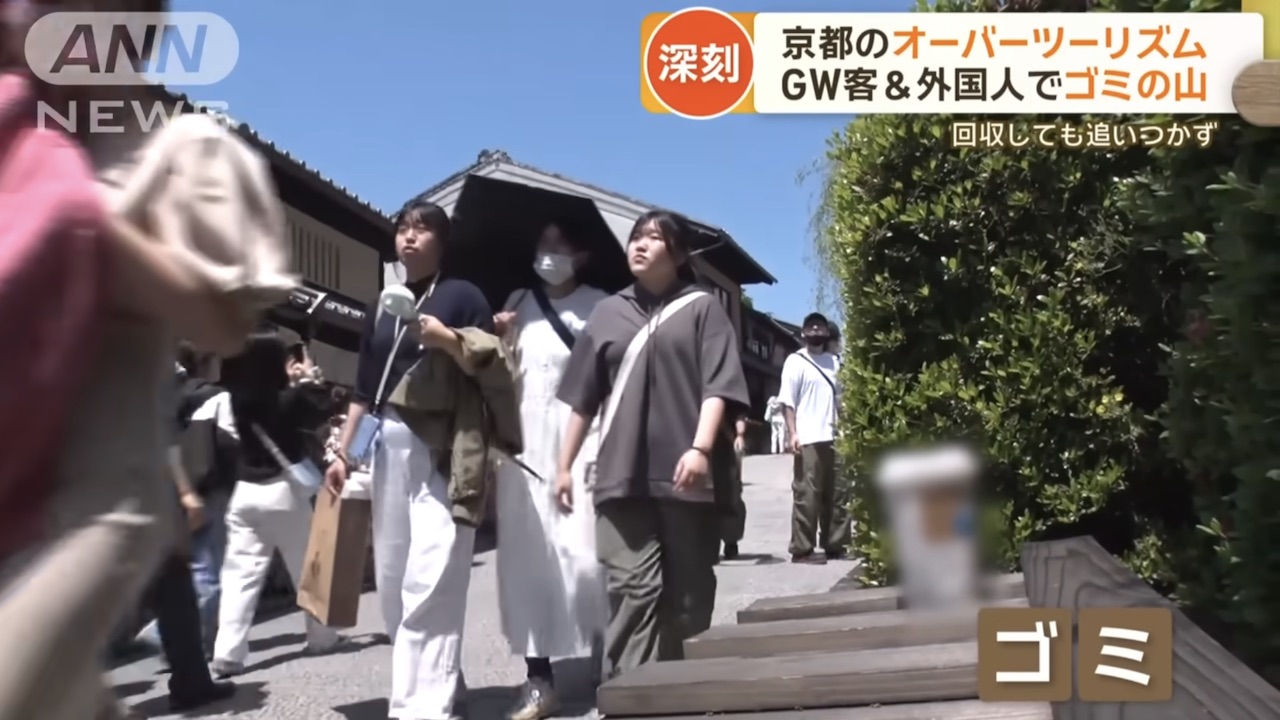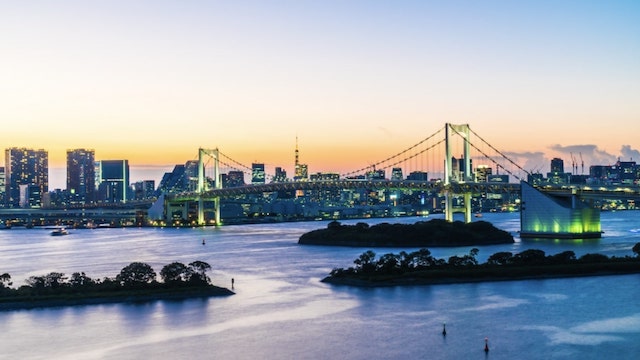KYOTO, May 08 (News On Japan) - During the Golden Week holiday, Kyoto faced heavy crowds as foreign tourists, buoyed by a weak yen, combined with domestic travelers, leading to overcrowding. At popular spots, trash was scattered, highlighting the major issue of overtourism.
During Golden Week, many foreign tourists filled Kyoto. Despite temperatures near 30C, the road leading to the popular Kiyomizu Temple was packed with tourists.
Nearby businesses expressed mixed feelings. Hideyoshi Oi from Hyotan-ya stated, "During the pandemic, daily sales were about 800 yen to 1,000 yen. Now, sales are on a completely different scale. We're grateful. That's all."
However, Kyoto faces the issue of overtourism, with buses and public transportation overcrowded, making it difficult for locals to use.
A Kyoto resident noted, "Tourists' luggage obstructs access, so it's hard to get on the bus in one go. Even if citizens want to board, they can't."
A local shop owner commented, "Kyoto is not like Tokyo, where buses are essential for transport. Especially for the elderly, buses are vital for hospital visits and shopping, but they can't board anymore."
Kyoto attempted to address the issue during Golden Week by running additional buses, but the measures were insufficient.
Trash Issues Emerge from Overtourism
Another problem with overtourism is trash. Cups were hidden in hedges, and bottles were left behind poles, while other garbage like paper packs was discarded carelessly.
In Arashiyama, people overflowed onto the roads, and the popular Togetsu Bridge shopping district faced trash issues. Keisuke Ishikawa, the head of Arashiyama's shopping district, noted, "This used to be the last government trash bin on this street. When other bins were removed, this one started overflowing."
Initially, the street had multiple bins installed by the city, but they couldn't handle the amount of tourist trash, leading to an overflow situation. The city removed the bins, resulting in more hidden trash.
Ishikawa added, "Tourists wonder where to dispose of their trash and end up hiding it in places like hedges. People are trying to be responsible, but residents feel uncomfortable and saddened."
In Gion, near the Kamogawa River, many people gathered during Golden Week. The city increased trash collection from two to three times daily, but by night, trash was scattered under the bins near Shijo Bridge, with bottles forced into the bins.
Balancing Tourism and Local Life
Early in the morning, program staff interviewed a man cleaning near Kamogawa. The local resident explained, "My mother became bedridden 18 years ago, and I've been continuing her cleaning efforts since then."
He inherited the cleaning duty from his mother, who did it out of goodwill, and he expressed concerns about the future.
The resident stated, "(Q. All this trash from just this morning?) One bag from last evening, the rest from today."
While some people help the man, he acknowledges limitations. "Local goodwill only goes so far. I will die one day. Local people, seeing no other choice, handle this, which is Kyoto's reality. Kyoto's current policies are at their limit. Overtourism can't continue; residents aren't happy."
How to balance tourism and local life remains a key issue for Kyoto, a city that will have to continue confronting this problem.
Kyoto to Launch Tourist Express Buses
Source: ANN
















